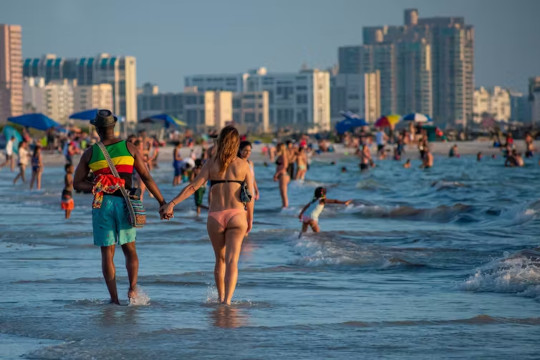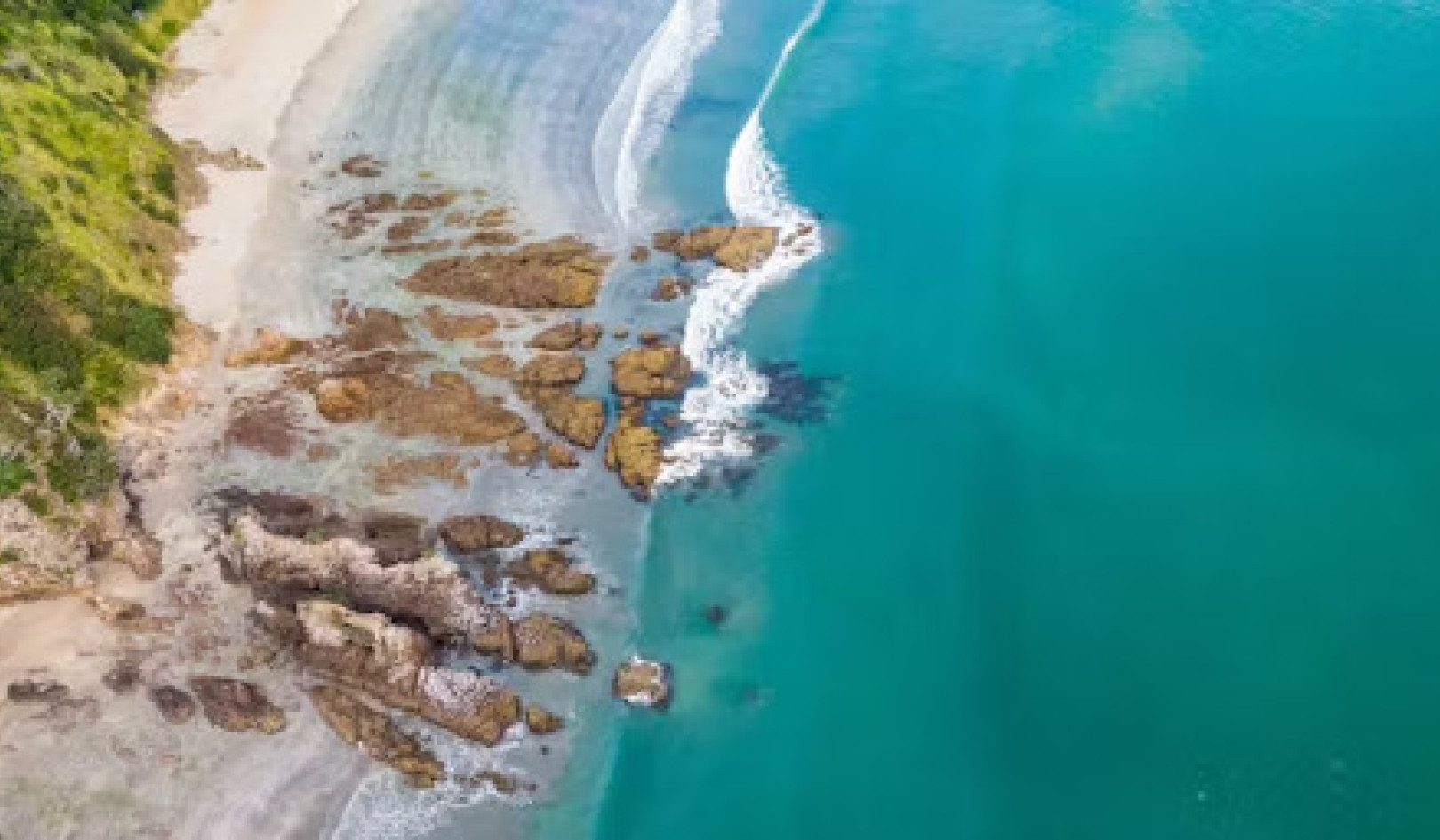
Florida’s Clearwater Beach. Viaval Tours/Shutterstock
Florida is known worldwide for its beaches, resorts and theme parks, but has recently made headlines for a different reason. Florida's Changing Image: From Sunshine State to Political Controversy
In his 1947 book, Inside USA, writer John Gunther described Florida’s “freakishness in everything from architecture to social behaviour unmatched in any American state”. If Gunther had been writing today, he might be just as judgemental.
Florida’s recent political turmoil can be attributed to some highly contentious policies. The state has witnessed heated debates and legislative battles on issues including abortion, gun control, education, LGBTQ+ rights and voting rights.
Florida has been derided as “the worst state” in which to live, one of the worst in which to be unemployed or a student, and not a good place to die.
Even Donald Trump, who moved to his Florida Mar-a-Lago home during his presidency, has called it “among the worst states” to live in or retire to. This was an attack on Florida governor Ron DeSantis, who is also running for the Republican presidential nomination.
What was once considered by many to be a purple state – one that could either be Republican or Democrat – is now fiercely Republican. In recent years, the divide between those of different political beliefs has become toxic.
Importance of international image
International tourism and trade is huge business for Florida. In 2022, more than 1.1 million people visited Florida from the UK, the second largest group of international visitors on an annual basis. The UK is also Florida’s eighth largest trade partner with bilateral trade reaching $5.8 billion (£4.6 billion) in 2022. So state leaders might worry about tarnishing its image abroad.
Business leaders are already fretting about a fall in international visitor numbers linked to COVID and negative media coverage of the state. Around US$50 million was invested in marketing the state to tourists in 2023, this is expected to rise dramatically in 2024. The state’s ability to attract workers to keep its tourism and other industries going is weakening, reports suggest.
Heather DiGiacomo, chief of staff at the Florida Department of Juvenile Justice, told Florida senators that applications for jobs at state-run agencies were down and staff retention was down too. “These turnover rates … impacts the number of well-trained staff available to mentor new staff and puts additional strain on current staff without longer shifts in detention.”
Republican governor Ron DeSantis, now a presidential candidate, has been at the centre of Florida’s significant political divisions. The Republican state legislature’s controversial partisan bills, such as the recent redrawing of the electoral map to benefit the Republican party, was signed into law despite intense opposition.
While his conservative policies on taxes, regulation and immigration have won strong support from conservatives, critics argue that he prioritises partisan politics over the needs of all Floridians. His outspoken handling of the COVID pandemic sparked controversy, with accusations of downplaying the severity of the virus and prioritising economic interests.
Florida’s restrictive abortion laws have also attracted national and international attention. In April 2023, the state passed the foetal heartbeat bill, which prohibits abortions once a foetal heartbeat is detected, typically at around six weeks gestation. This law has faced significant backlash from reproductive rights advocates, who argue that many individuals may not even be aware of their pregnancy at such an early stage.
School shootings and gun laws
The Marjory Stoneman Douglas High School Public Safety Act was passed into Florida state law after the Parkland school shooting in 2018, in which 17 people were killed. It was controversial because it did not place restrictions on gun ownership or introduce background checks before gun purchases, but allowed schools to employ armed “guardians”. Critics argued that it fell short of addressing the root causes of gun violence in Florida.
There were seven mass shootings in Florida in the first two months of 2023. Despite this, the state has just passed a law that will come into effect on July 1 that will allow anyone who can legally own a gun in Florida to carry one without the need for a permit.
Florida’s partisan divide has been exacerbated by the introduction and passage of several laws that discriminate against the LGBTQ+ community. These laws cover areas including adoption, education, and transgender rights.
This year a massive LGBTQ event in a Florida theme park, which typically attracts 150,000 people, is taking out extra security measures, after new “don’t say gay” state laws were introduced in 2022. These rules ban teachers from discussing topics including sexual orientation. More generally, travel advisory warnings have been issued on the risks of travel to the state for LGBTQ+, African American and Latino people. A recent federal ruling overturned municipal bans on conversion therapy.
Although the “don’t say gay” bill was originally only aimed at third grade students and under, the bill has since been extended by Florida’s Board of Education to apply to all school pupils.
DeSantis has also become embroiled in a long legal and political battle with the Walt Disney Company, a major state employer, over the “don’t say gay” legislation. Disney recently announced it was cancelling a US$1 billion office complex project in the state.
Bills that restrict transgender students’ participation in school sports teams consistent with their gender identity have also sparked heated debate.
Meanwhile, changes in voting laws brought in by the state, including stricter identification requirements and limitations on the drop boxes where voters can leave mail-in ballots, have been criticised for making it more difficult for some people to vote.
Florida’s recent political turmoil has thrust the state into the national, and global, spotlight. Its deeply partisan divide, controversial policies and gun laws have created a toxic political climate, which has the ability to significantly damage the sunshine state’s appeal.![]()
About The Author
Dafydd Townley, Teaching Fellow in International Security, University of Portsmouth
This article is republished from The Conversation under a Creative Commons license. Read the original article.
Recommended books:
Capital in the Twenty-First Century
by Thomas Piketty. (Translated by Arthur Goldhammer)
 In Capital in the Twenty-First Century, Thomas Piketty analyzes a unique collection of data from twenty countries, ranging as far back as the eighteenth century, to uncover key economic and social patterns. But economic trends are not acts of God. Political action has curbed dangerous inequalities in the past, says Thomas Piketty, and may do so again. A work of extraordinary ambition, originality, and rigor, Capital in the Twenty-First Century reorients our understanding of economic history and confronts us with sobering lessons for today. His findings will transform debate and set the agenda for the next generation of thought about wealth and inequality.
In Capital in the Twenty-First Century, Thomas Piketty analyzes a unique collection of data from twenty countries, ranging as far back as the eighteenth century, to uncover key economic and social patterns. But economic trends are not acts of God. Political action has curbed dangerous inequalities in the past, says Thomas Piketty, and may do so again. A work of extraordinary ambition, originality, and rigor, Capital in the Twenty-First Century reorients our understanding of economic history and confronts us with sobering lessons for today. His findings will transform debate and set the agenda for the next generation of thought about wealth and inequality.
Click here for more info and/or to order this book on Amazon.
Nature's Fortune: How Business and Society Thrive by Investing in Nature
by Mark R. Tercek and Jonathan S. Adams.
 What is nature worth? The answer to this question—which traditionally has been framed in environmental terms—is revolutionizing the way we do business. In Nature’s Fortune, Mark Tercek, CEO of The Nature Conservancy and former investment banker, and science writer Jonathan Adams argue that nature is not only the foundation of human well-being, but also the smartest commercial investment any business or government can make. The forests, floodplains, and oyster reefs often seen simply as raw materials or as obstacles to be cleared in the name of progress are, in fact as important to our future prosperity as technology or law or business innovation. Nature’s Fortune offers an essential guide to the world’s economic—and environmental—well-being.
What is nature worth? The answer to this question—which traditionally has been framed in environmental terms—is revolutionizing the way we do business. In Nature’s Fortune, Mark Tercek, CEO of The Nature Conservancy and former investment banker, and science writer Jonathan Adams argue that nature is not only the foundation of human well-being, but also the smartest commercial investment any business or government can make. The forests, floodplains, and oyster reefs often seen simply as raw materials or as obstacles to be cleared in the name of progress are, in fact as important to our future prosperity as technology or law or business innovation. Nature’s Fortune offers an essential guide to the world’s economic—and environmental—well-being.
Click here for more info and/or to order this book on Amazon.
Beyond Outrage: What has gone wrong with our economy and our democracy, and how to fix it -- by Robert B. Reich
 In this timely book, Robert B. Reich argues that nothing good happens in Washington unless citizens are energized and organized to make sure Washington acts in the public good. The first step is to see the big picture. Beyond Outrage connects the dots, showing why the increasing share of income and wealth going to the top has hobbled jobs and growth for everyone else, undermining our democracy; caused Americans to become increasingly cynical about public life; and turned many Americans against one another. He also explains why the proposals of the “regressive right” are dead wrong and provides a clear roadmap of what must be done instead. Here’s a plan for action for everyone who cares about the future of America.
In this timely book, Robert B. Reich argues that nothing good happens in Washington unless citizens are energized and organized to make sure Washington acts in the public good. The first step is to see the big picture. Beyond Outrage connects the dots, showing why the increasing share of income and wealth going to the top has hobbled jobs and growth for everyone else, undermining our democracy; caused Americans to become increasingly cynical about public life; and turned many Americans against one another. He also explains why the proposals of the “regressive right” are dead wrong and provides a clear roadmap of what must be done instead. Here’s a plan for action for everyone who cares about the future of America.
Click here for more info or to order this book on Amazon.
This Changes Everything: Occupy Wall Street and the 99% Movement
by Sarah van Gelder and staff of YES! Magazine.
 This Changes Everything shows how the Occupy movement is shifting the way people view themselves and the world, the kind of society they believe is possible, and their own involvement in creating a society that works for the 99% rather than just the 1%. Attempts to pigeonhole this decentralized, fast-evolving movement have led to confusion and misperception. In this volume, the editors of YES! Magazine bring together voices from inside and outside the protests to convey the issues, possibilities, and personalities associated with the Occupy Wall Street movement. This book features contributions from Naomi Klein, David Korten, Rebecca Solnit, Ralph Nader, and others, as well as Occupy activists who were there from the beginning.
This Changes Everything shows how the Occupy movement is shifting the way people view themselves and the world, the kind of society they believe is possible, and their own involvement in creating a society that works for the 99% rather than just the 1%. Attempts to pigeonhole this decentralized, fast-evolving movement have led to confusion and misperception. In this volume, the editors of YES! Magazine bring together voices from inside and outside the protests to convey the issues, possibilities, and personalities associated with the Occupy Wall Street movement. This book features contributions from Naomi Klein, David Korten, Rebecca Solnit, Ralph Nader, and others, as well as Occupy activists who were there from the beginning.
Click here for more info and/or to order this book on Amazon.
























